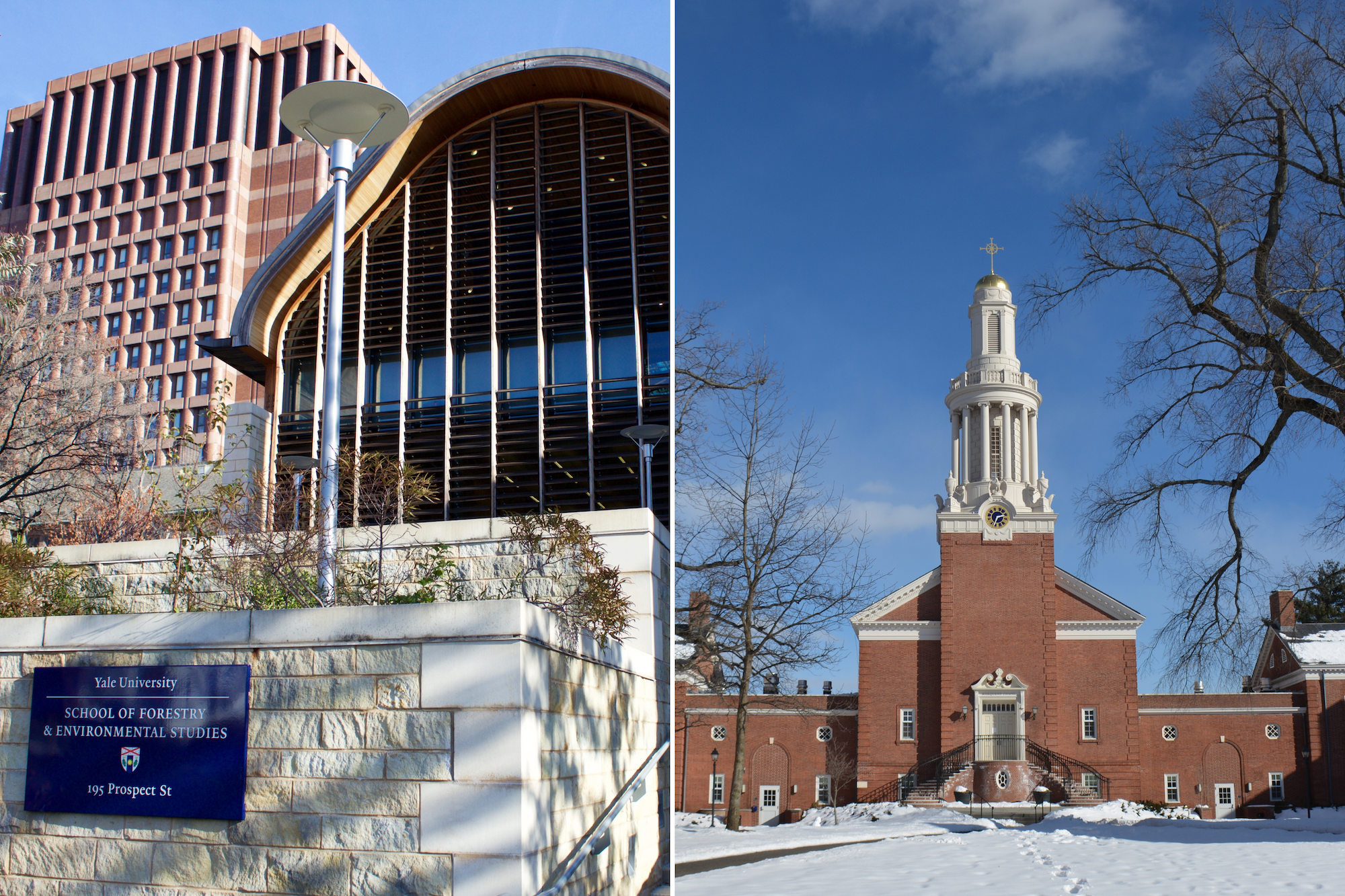Yale scholars to explore ties between divinity and ecology at conference
The 6th annual event will happen February 25th.

Yale Daily News
Yale community members will explore the intersection of religion and the environment later this month at the sixth annual Graduate Conference in Religion and Ecology.
Yale Divinity School and the Yale School of the Environment will co-host the conference on Feb. 25. The connection between religion and the environment is not new to the Divinity School; in 2016, the school introduced a “Religion and Ecology” concentration to its Master of Arts in Religion degree. The virtual conference will explore the ties between religion and the environment, and is open to graduate and undergraduate students across the world. Melanie Harris, professor of Black feminist thought and womanist theology at Wake Forest University Melanie Harris — whose work critically examines the relationships between race, religion, gender and environmental ethics — will serve as keynote speaker for the conference.
“The conference is great, and it’s reflective of a larger ethic and commitment on the part of the greater YDS community, including many alumni, as well as current students, and faculty and staff,” Divinity School Director of Communications Tom Krattenmaker said.
In 1996, Harvard University hosted its Religions of the World and Ecology conference series, cementing religion and ecology as a field of study. The field itself “focuses on retrieving, re-evaluating, and reconstructing narratives, practices, and worldviews that influence relationships between human society and the environment,” according to GCRE’s website.
In addition to current students, the conference is also targeted toward YDS and School of the Environment alumni. Krattenmaker noted the underlying similarities between the two Yale graduate programs hosting the event.
“There seems to be a natural affinity, with somewhat different starting points because the YDS is more religious, but a potent combination between the YDS and the School of Environment,” Krattenmaker said. “And that’s why I think this conference is so cool because it combines students from the two schools.”
Many YDS alumni use their education to fight for environmental issues. Nathan Empsall DIV ’19, for one, recently studied Episcopal congregations across the country and attempted to gauge the church’s engagement with creation care and climate change.
Sophie Beal DIV ’22 recognized the different ways the Bible could be read to promote creation care.
“Sometimes people read the story in the Bible when God gave humans dominion over the plants and animals, as ‘that’s our right to extract all of the world’s natural resources,’’ Beal said. “But what that really means is we are the caretakers of the earth.”
Krattenmaker noted that many of the environmental movements today can be seen through a religious and moral lens. He added that the climate crisis is a prevalent topic in some of the more progressive factions of American Christianity
While attention to the climate crisis is similar to some political movements, Krattenmaker said, it is also propelled by a religious dimension. He noted that there are themes in the Bible that give the movements momentum.
I’noli Hall DIV ’22 sees the concept of stewardship in the Bible as important to the environment, as well.
“We have a responsibility to take care of the earth that God has given us and to steward it well and to take care of it for the benefit of all people and creatures that inhabit this earth,” Hall said.
The Divinity School was founded in 1822.







